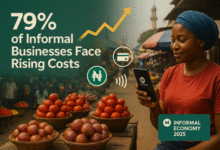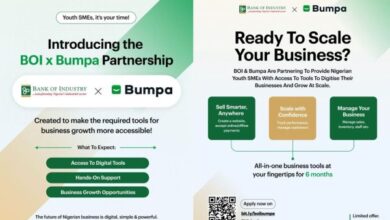A Professor’s Vegetable Hustle Sparks Agribusiness Inspiration for Nigerian Youth

In a powerful testament to the value of self-reliance and agripreneurship, Professor Nasir Hassan-Wagini of the Department of Biology at Umaru Musa Yar’adua University (UMYU), Katsina, is rewriting the narrative on what it means to be an academic in today’s Nigeria. Despite his elevated status as a professor of plant resources, Hassan-Wagini is not content with theory alone—he actively sells vegetables at the Batsari weekly market and urges Nigerian youths to embrace small-scale enterprise as a viable alternative to white-collar unemployment.
“I’m not ashamed to sell vegetables,” he told The News Agency of Nigeria. “What matters is what you are contributing to society.”
A son of farmers and a lifelong cultivator of the soil, Professor Hassan-Wagini has merged academic excellence with grassroots economic activity, creating a compelling model of dignified self-sufficiency. His story has gained traction not just for its novelty, but for its resonance in a country grappling with high youth unemployment, inflation, and rising food insecurity.
“Most graduates feel it is beneath them to engage in petty trade or farming,” the professor observed. “But if a professor can do it, why not them? Farming is not a fallback plan; it’s a future.”
Agriculture as a Viable Path to Prosperity
Nigeria’s formal employment sector continues to struggle under macroeconomic pressure, leaving many graduates stranded. According to recent National Bureau of Statistics (NBS) data, youth unemployment and underemployment remain acute, with nearly one in three young Nigerians unable to find stable work.
Experts have consistently pointed to agriculture and agribusiness as viable pathways for employment, wealth creation, and national food security. Yet, many young people shy away from the sector due to perceived low prestige, capital constraints, and market uncertainties. Hassan-Wagini’s visible participation in everyday produce sales sends a different message—one of practicality and pride.
“Our youths should stop roaming cities in search of elusive jobs. Start where you are, with what you have, and build from there,” he said. “Even if it’s fresh pepper or onions, there’s dignity in labour.”
Local Markets, Real Money
A walk through the Batsari market, where Professor Hassan-Wagini sets up his stall, reveals the hard economics of Nigeria’s produce sector. A 100kg bag of dried red pepper currently retails for N115,000 or more, while a similar bag of onions fetches N65,000. Dried tomatoes go for N60,000 per 100kg, and fresh hot pepper can command up to N100,000 for just 50kg.
These figures, often overlooked in mainstream career planning, underscore the profit potential in everyday food commodities—especially when markets are well-organized and logistics are secured. With the onset of the next harvest cycle, prices are expected to adjust, but demand remains strong, particularly for staple ingredients like onions and tomatoes in the Agribusiness ecosystem.
Security as an Enabler of Agribusiness
Importantly, improved security conditions in Batsari—a region previously plagued by banditry and instability—have helped revive economic activity. Local farmers and traders now feel safer commuting and engaging in weekly market trade, a development that could help boost rural incomes and reduce pressure on urban centers.
“Business is returning to normal,” confirmed Malam Uzairu, a fellow trader and one of the professor’s market neighbors. “We’re seeing more buyers, and with people like the professor among us, we know this isn’t just trade—it’s transformation.”
Blending Book and Business
Beyond commerce, Professor Hassan-Wagini’s lifestyle embodies a growing call for hybrid skillsets in Nigeria’s next generation. As conversations around “Education Plus” gain ground—emphasizing vocational, digital, and entrepreneurial skills alongside formal education—his message resonates: “Pair your degree with a skill. Build something tangible. Start small, think big.”
In a nation where the agriculture sector contributes nearly 24% to GDP but still suffers from youth disinterest and low modernization, stories like his are not just inspirational—they are strategic.
Bottom Line: Lessons from the Stall
The professor’s vegetable hustle is more than a quirky footnote in Nigerian academia. It is a real-time case study in agribusiness as a tool for empowerment, wealth generation, and dignity. For Nigeria’s unemployed graduates, rural communities, and future farmers, the message is clear: the future is not just in the office, but also in the soil.
Editor’s Note:
BRANDECONOMY champions stories of innovation, resilience, and opportunity in Nigeria’s evolving business ecosystem—from boardroom to market square.











